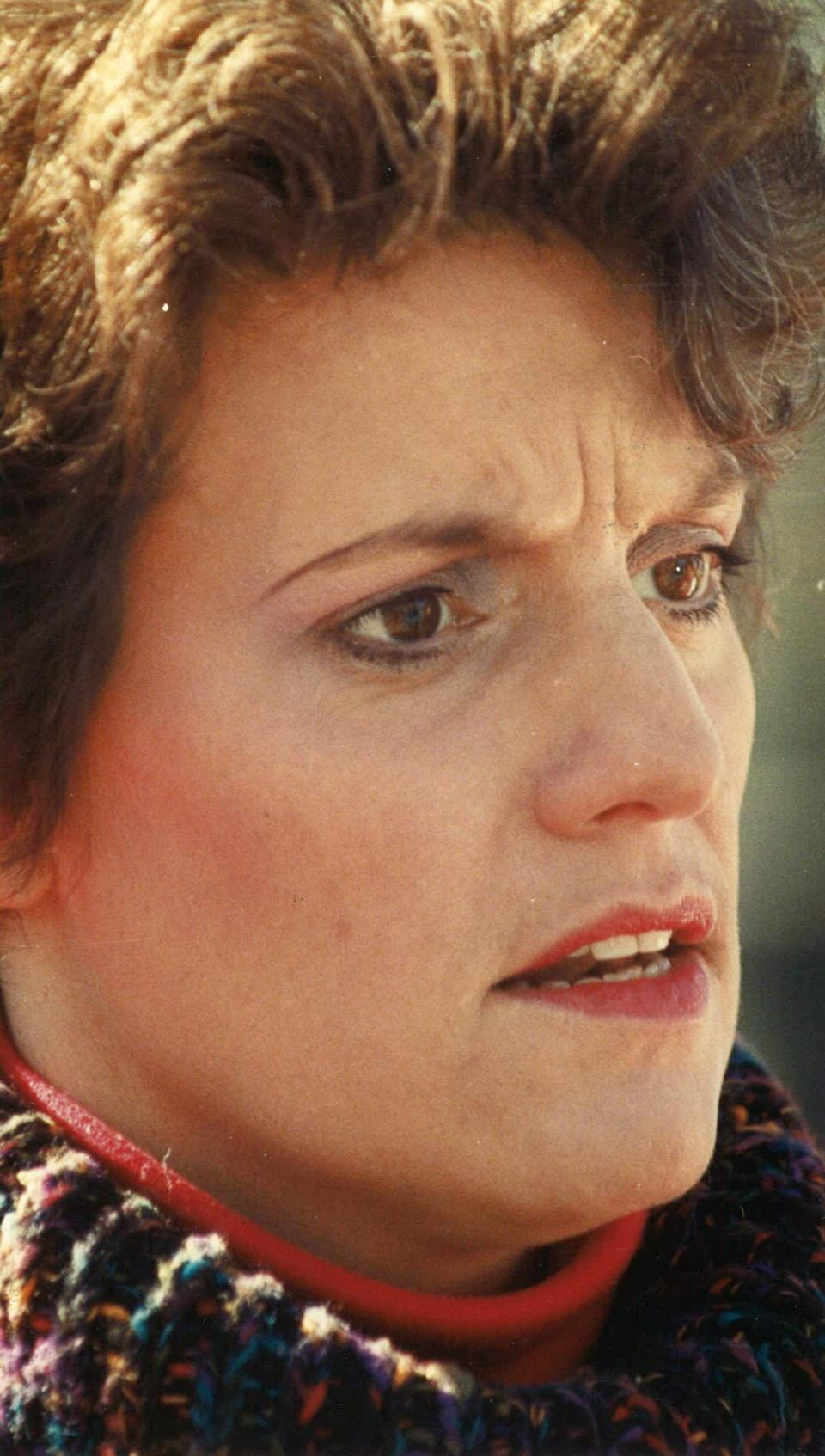'Normal Heart' documentary recalls controversy, arson in Springfield

A documentary screening in Springfield this weekend touches a difficult moment in Springfield history — a 1989 theatre production of The Normal Heart stirred protests, nationwide controversy and arson over the play's depiction of same-sex love.
Part of the library's "Preserving the Ozarks" series, the documentary "Remembering the Normal Heart: Controversy in Springfield, Missouri" will play at 5 P.M. this Sunday at the Moxie Cinema. A panel after the screening will include the documentary's director Patricia Moore as well as journalists, archivists and others who lived through the controversy.
As much a political manifesto as a drama, The Normal Heart tells the semi-autobiographical story of a group of gay men's activism in the face of the AIDS epidemic in the early '80s. Written by gay rights activist Larry Kramer, the play outlines queer people's struggle to receive adequate healthcare or research to combat a disease that many falsely believed only affected homosexuals.
In the backdrop of the AIDS crisis, the Southwest Missouri State University (now Missouri State) theatre department decided to produce the politically charged play in an attempt to raise awareness about the disease among SMSU students. The move immediately generated controversy with widescale protests and calls for the University to be defunded.
These efforts were led by Springfield state Representative Jean Dixon and a group called Citizens Demanding Standards — who argued the play's promotion of homosexuality went against the community's deeply conservative and religious morals.

"The play presents the perversion of homosexuality as though it were 'normal,'" Dixon wrote in a 1989 Op-Ed in the Springfield News-Leader.
"It attempts to arouse sympathy for its practice and encourages the audience to ultimately support it politically. It is in fact a political agenda one they would die for before abandoning. What they are really saying is, 'You heterosexuals affirm us in our lifestyle, find a cure for this dreadful disease so we can continue to practice our lifestyle with impunity.' It is in fact a political propaganda performance to advance the interest of what might be called the 'Gay Political Party.'"
More than 1,200 people filled the Shrine Mosque to protest the University's production of the play. To combat Dixon and Citizens Demanding Standards, SMSU students organized People Acting with Compassion and Tolerance, which counter-protested many of these events. Because of threats to the theatre, Normal Heart attendees were searched before being seated for the play's performance.
While the play's opening seemed to go on without incident, the house of one of the play's strongest supporters was burning down.
"It doesn't discourage me. But I never thought anything like this would happen. I lost both of my cats,” SMSU student Brad Evans told the News-Leader at the time. “And I was able to retrieve a basket’s worth of clothes. That was it.”

The protests and subsequent arson garnered national news coverage at the time. Evans even received a call of consolation after the fire from then-real estate tycoon Donald Trump.
Reached for comment by a News-Leader reporter the night of the fire, Rep Jean Dixon allegedly called Evans a "Satan worshipper" and suggested he may have set the fire himself. After the story's publication, Dixon strongly denied she said either.
Years after the controversy in a 1992 interview with the News-Leader, Dixon said her opposition to the play stemmed in large part from her own son's struggle with homosexuality before a religious experience in his late teens.
"I wasn't just some hard-nosed so-called Christian out here ranting and raving," she said. "It had been a heartache I had to deal with, and it was a tough one."
Asked if she would oppose the play again, she said, "You bet - I believe it was the right thing to do."
That interview played some part in the political career of her son, now-Greene County Presiding Commissioner Bob Dixon, who addressed his teenage identity crisis during his 2015 campaign for Missouri governor.
“Through the years, I have publicly spoken about being abused as a child and the confusion this caused me as a teenager. I have put the childhood abuse, and the teenage confusion behind me,” said Dixon, who has a wife and three children. “What others intended for harm has resulted in untold good. I have overcome, and will not allow evil to win.”
After the arson in 1989, the play's cast went into hiding to remain safe during the rest of The Normal Heart's run. Though the play concluded without incident, Normal Heart director Mike McElhaney said at the time that the whole cast and production team remained very paranoid.
"When a student is referred to as a Satan worshiper … and I get phone calls at 2 and 3 a.m. … and a car is following me … you can understand why it is I do not feel very rational," McElhaney said at a 1989 panel discussion on the controversy.
Despite these worries, McElhaney said they went forward with the production because it had the intended effect of raising awareness of AIDS among SMSU students and Springfield broadly.
"Before one can educate, one must make people aware, and the production of the play certainly has achieved that, he said. "There has been a President's Commission on AIDS on campus for two years, but how many students have read those nice sterile pamphlets?"
The controversy also revealed the deep fault lines within Springfield's community that are even visible today. Though language and specific issues change, Springfield remains a conservative and religious community where social change is often controversial.
That divide and The Normal Heart's legacy on Springfield is explored in "Remembering the Normal Heart: Controversy in Springfield, Missouri," which will be screened this Sunday at Moxie Cinema.
This article originally appeared on Springfield News-Leader: 'Normal Heart' documentary recalls controversy, arson in Springfield

